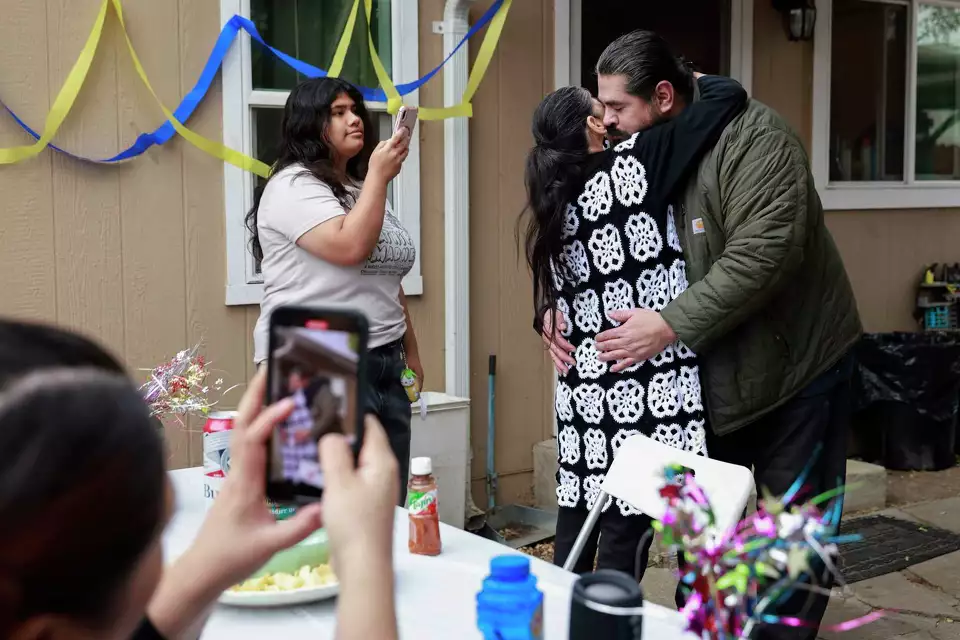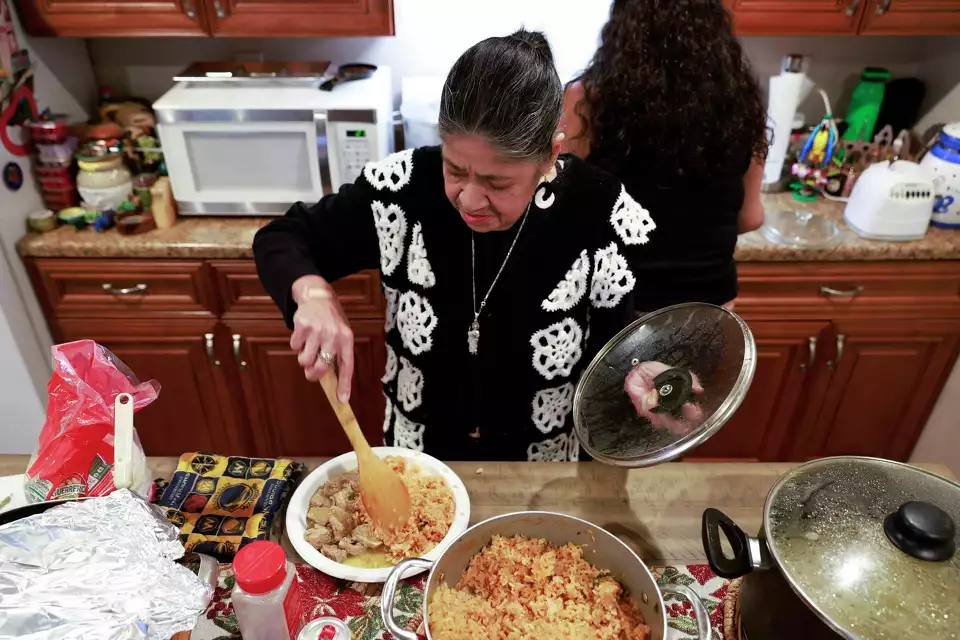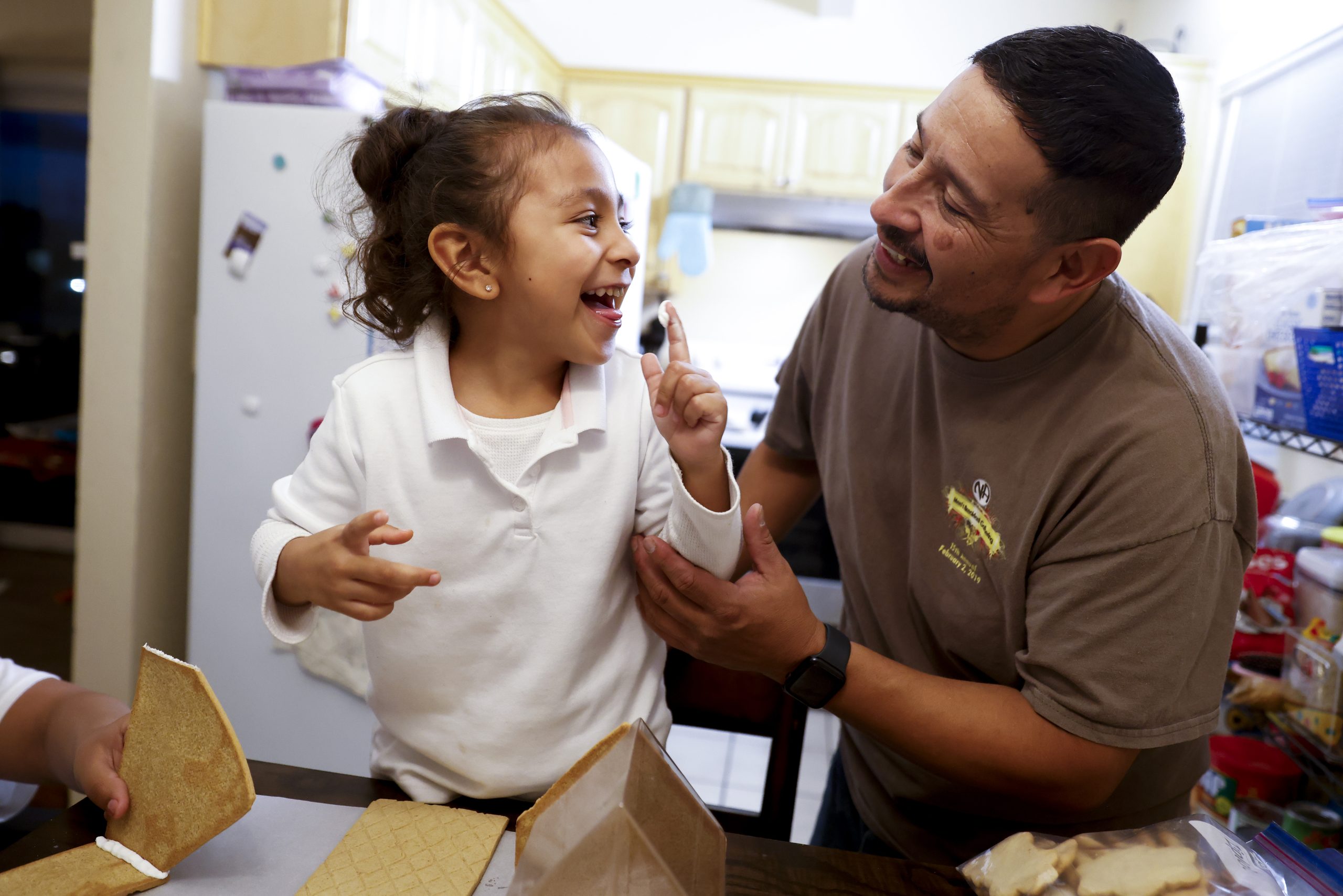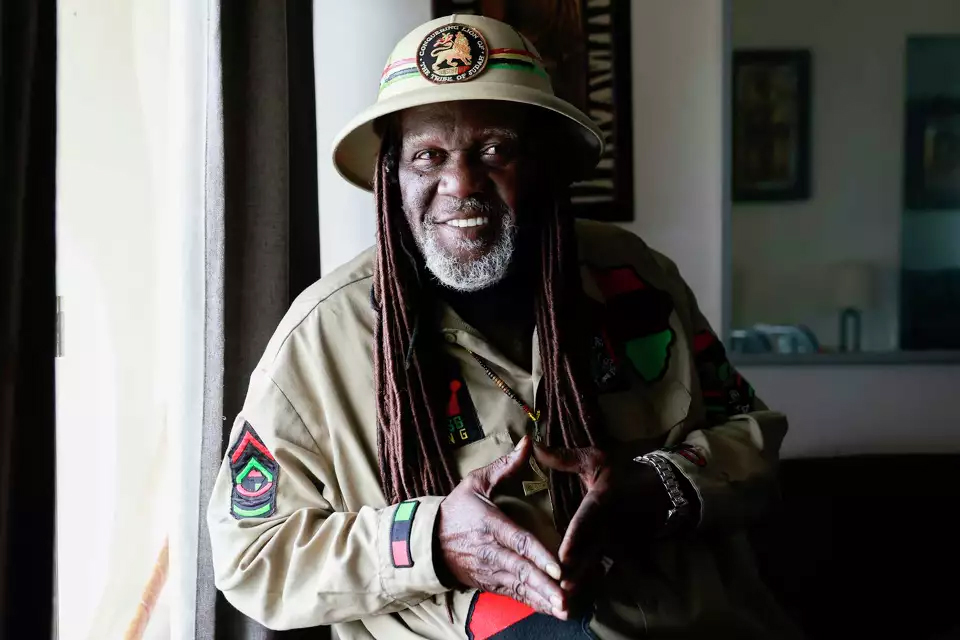Olivia Alatorre loves seafood. Lobster, shrimp, oysters — she could eat seafood all day and be happy as a clam.
But since she was diagnosed with aggressive stomach cancer in 2021, Alatorre, 67, has struggled to keep most food down.
The diagnosis came two years into Alatorre’s retirement, and it shattered her. “When they say something like that, the whole world is like …” she said, trailing off. “I don’t even want to talk to nobody. I said, ‘I’m gonna die pretty soon — oh, my God — and I don’t have nothing.’”
“I was very stressed. It was bad for me,” Alatorre said, fighting back tears. “I can’t even eat, I can’t swallow water, nothing.”
In February 2022, Alatorre had surgery. Doctors told her they would remove 20% of her stomach to cut out the tumor. But when she woke up after the operation, doctors broke the news: Her stomach cancer was so aggressive they had removed the entire organ to stem its tide. Alatorre’s esophagus was now connected directly to her small intestine.
For months, Alatorre could barely drink water without throwing up. Weight fell off, about nine pounds a week. She choked down four huge chemotherapy pills every morning and night. Five times doctors had to dilate her esophagus to help her swallow.
“I was very stressed. It was bad for me,” Alatorre said, fighting back tears. “I can’t even eat, I can’t swallow water, nothing.”

Just a few years earlier, Alatorre had been a sought-after senior employee at DuPont making a good income. After immigrating from Guadalajara, Mexico, to Los Angeles in 1975, Alatorre worked as a seamstress while teaching herself English — she brought a dictionary on the bus every day and learned one word on her commute to work and one word on her commute home.
Then she moved to San Jose and was employed at DuPont for 39 years, working in purchasing and as a designated trainer. Before she retired in 2019, Alatorre was managing a staff of seven men. She could estimate how much something weighed just by looking at it. She loved her job, and her team loved her.
But two years later, Alatorre’s hard-earned retirement checks weren’t enough to keep up with her endless medical bills — a $250 co-payment for every visit. And then there were the rent payments for her San Jose home, where she lives with her son, daughter and two grandchildren. After her son lost his job during the pandemic, Alatorre’s retirement money was the household’s only income.


“That took away from me a couple of months of stress,” Alatorre said. “I’m very grateful, very grateful for this help.”
With her landlord threatening eviction, Alatorre tried everything. She started a GoFundMe, borrowed money from relatives in Mexico, even pawned almost all of her jewelry, including the diamond bracelet her children gave her one Christmas.
When relatives stopped sending checks, Alatorre’s children started taking out payday loans. Still, Alatorre couldn’t keep up with the bills. She could barely sleep, waking in tears at 2 in the morning at the prospect of eviction.
Finally, with the help of social worker Shannon Clark from Havensafe, Alatorre applied for the Chronicle Season of Sharing Fund and received enough money to cover several rent payments.
Season of Sharing works throughout the year to prevent homelessness and hunger in the Bay Area’s nine counties. All donations directly help people in need.
“That took away from me a couple of months of stress,” Alatorre said. “I’m very grateful, very grateful for this help.”
Alatorre’s family still has bills to pay, but the cloud of despair has lifted. Alatorre’s 21-year-old grandson Robert is working at a grocery store to help pay the bills, and Havensafe is helping Alatorre’s son, Octavio, find a job.
“They say, ‘You are very strong.’ And I say, ‘I have to be.”
Ati, Alatorre’s 15-year-old granddaughter, is studying hard to fulfill her dream of studying marine biology at UC Berkeley — or maybe at UC Santa Barbara, though Alatorre thinks that’s much too far away.
And three years after her diagnosis, Alatorre is finally cancer-free. “I never want to see (cancer) again because I went through a lot, a lot,” Alatorre said. “They say, ‘You are very strong.’ And I say, ‘I have to be.’”
After her surgery, Alatorre could hardly lift a pot, but now she’s back to cooking her family breakfast — scrambled eggs, bacon, and Italian sausage are go-tos. Her appetite is mostly back and she can eat normally, although in smaller portions.
Next on the culinary horizon is her slow-cooked beef barbacoa and her special Thanksgiving turkey and stuffing.
When she’s out of debt, Alatorre wants to take a vacation. Perhaps to Mexico, or even to Las Vegas: She’s dreaming of the seafood buffets.
Reach Maliya Ellis: maliya.ellis@hearst.com

At Season of Sharing Fund, we believe that an unexpected financial crisis should never mean losing your home. Preventing homelessness isn’t just kind—it’s also the most effective way to keep our communities thriving. 100% of your donation keeps Bay Area residents housed, cared for and nourished.






